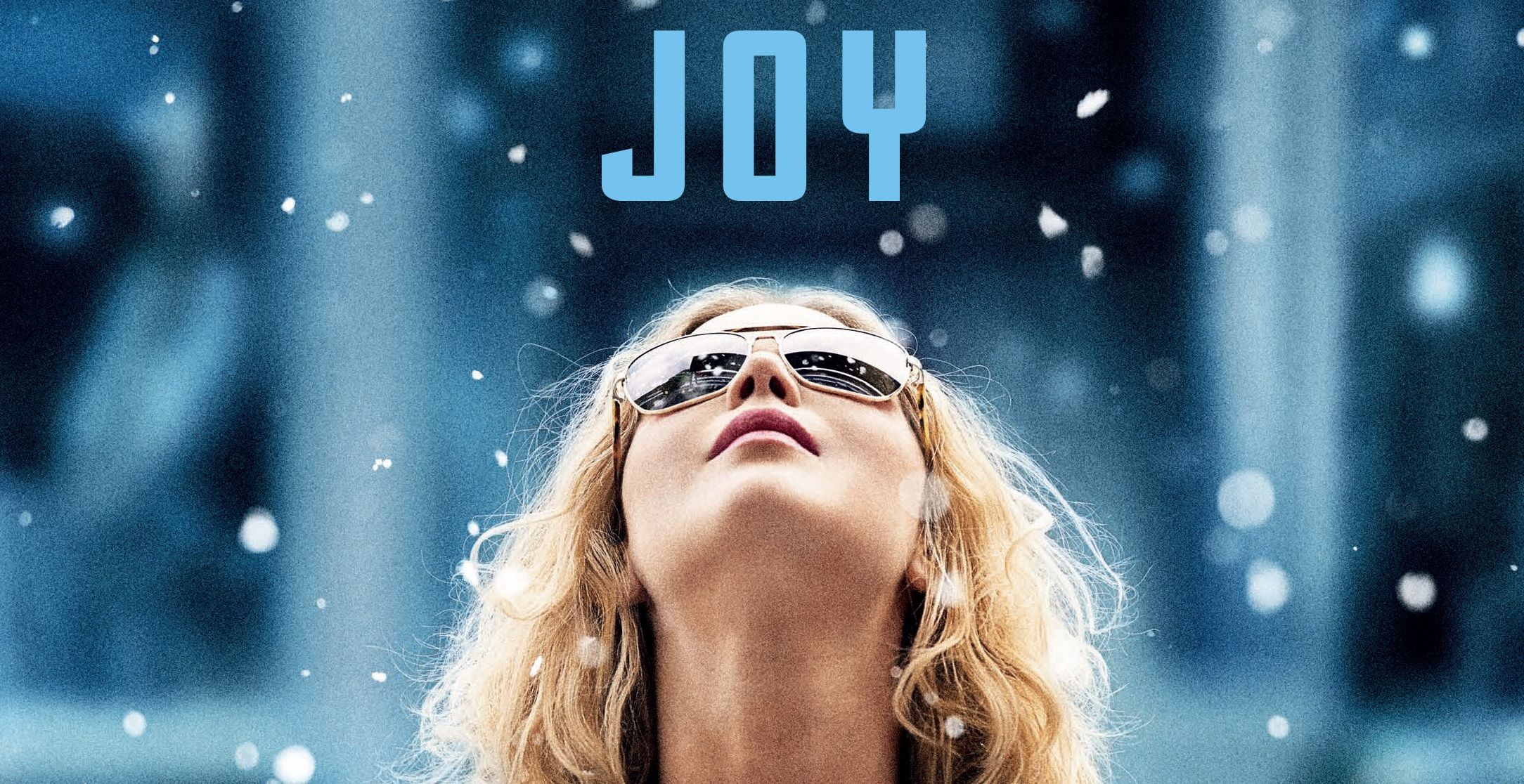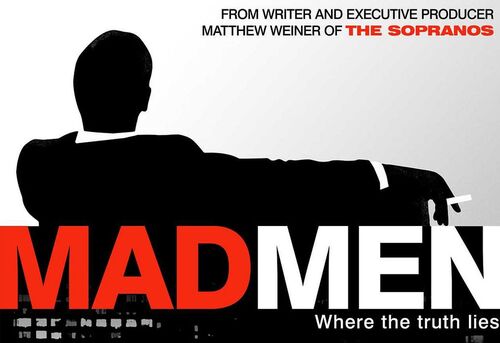
Joy (2015) Film Review
 If Jennifer Lawrence had anything left to prove with her abilities as an actress, then she delivers in spades in her latest pairing with a handful of frequent collaborators. As the latest in David O. Russell's expanding library of star-powered drama's though, not everything works as smoothly as his past projects.
If Jennifer Lawrence had anything left to prove with her abilities as an actress, then she delivers in spades in her latest pairing with a handful of frequent collaborators. As the latest in David O. Russell's expanding library of star-powered drama's though, not everything works as smoothly as his past projects.
As a "multi-generational fable", as he puts it, Joy falls a little short. It's a fancy tagline for a film that follows the rise of a young woman and mother of two from broke and near-homeless to the entrepreneur she'd grow to be (as evidenced by the true life character of Joy Mangano).
The film incorporates many of Russell's common artistic tendencies, not least of all his revered trio of Lawrence, Bradley Cooper, and Robert De Niro. Cooper's introduction is a clear-cut example of Russell's love of emphasising his characters (and actors), arcing the camera around their faces or zooming in steadily. Giving his characters an entrance is something he rarely fails to do. He even, deliberately, stalls the arrival of Lawrence for the purpose of both an entrance, and also a framing device.
While Cooper's role is relatively small in comparison to other recent roles, he and Lawrence's screen-time together is arguably the standout factor of Joy. Much has been said about their chemistry, and again it feels as though the electricity is bouncing in every direction from the centre of their relationship on screen. This time, it's entirely a business relationship, though their support of and reliance on one another is a warming reminder of the bond each actor shares on set.
De Niro is funny and lively as Joy's father, though the character gets away from the script a little. That's perhaps where the problems begin. Joy is the support beam holding her broad and dysfunctional family together (her useless mother, ex-husband, two children, loving grandmother, rounded out with her father near the beginning). Her best friend Jackie (Dascha Polanco), her half-sister Peggy (Elisabeth Rohm) and her father's new partner Trudy (Isabella Rossellini) burst in through the walls as entities from outside the family home, bulking up an already bursting list of characters.
Because of this, very few of them get a satisfying exit from the narrative. The very prominent relationship between Joy and her daughter is concluded at a low-point and is never repaired. Her father's role in the film deteriorates until he becomes second fiddle to the domineering voice of Trudy. Peggy is a one-dimensional woman vying for the acceptance and success her half-sister has seemingly 'stolen' from her (petty jealousy is less compelling than the script assumes).
The story itself is stock standard in many respects; Joy is essentially the underdog, and her creation as a driving force behind the narration is a difficult one to sell. But when the script applies her creation to the idea that any creation goes through these same trials (as evidenced through Cooper's tour through the QVC), it becomes less about the product and more about the process. While some have touted that its message, by the time credits roll, argues that money solves everything, it's hard to justify that take away when we consider where Joy started.
Money plays a role in this, just as it does in almost everything. And while it can be seen as a vain catalyst for Joy's mother's happiness by the end (that is entirely undeserved). The first half, at least, of the film, the love within Joy's family is the truly sad and joyous element behind many of the events we witness. Joy's devotion has caused her unhappiness, and her parents can often be frustrating in their unacceptable use of their daughter (and in that use, holding her back from the happiness they should believe she deserves). She's so completely sympathetic that it's impossible not to root for her.
The film opens with a scene shot through one straight-on camera, and we watch slow and bizarre black and white footage from a soap opera. The soap opera plays an occasional role throughout the film, right up until it stops doing so. It's dropped eventually, and its use never truly makes sense other than to catalogue the droll life of Joy's mother. The film also opens with a strange narration, made stranger by later revelations. However, it plays such a haphazard and imbalanced role that it's hard to pinpoint the need for it exactly. Setting up the self proclaimed fable is an opening scene that introduces Joy when she is very young (a visual element that returns toward the end), and her younger self returns to her in a cliched dream sequence that acts as a catalyst for Joy's renewed motivation.
Cooper plays Neil Walker, an executive producer at QVC, and Joy's one hope at making something of her product. The energy between them is matched only by the scenes of maddening chaos that take place inside the tiny, dysfunctional home of the Magano's. These particular scenes recall similar instances in Silver Linings Playbook, an earlier Russell/Lawrence/Cooper collaboration. There's a liveliness to Russell's camerawork that makes for dynamic filmmaking, allowing the visuals to truly play an artful role other than simply a vessel to travel from 'a' to 'b'. The rotating platforms that stage the sets for advertising campaigns makes for its own unique visual insert. And its on that stage that Lawrence shows her range (or at least, one of many stages).
Her ranking as a talent in the acting world is no easier to staple down than when she is standing, frozen, on the stage facing the cameras, before awkwardly talking her way through a phone call with who is revealed to be her best friend Jackie. She relaxes and then grows confidence, and its not only evidenced in her face but also in her posture, her voice, her eyes. Much like Neil's explanation that the eyes and hands sell the product, Lawrence never relies on one particular action or asset in delivering her performance. She completely sinks into the role.
And she compels us with her emotional range, sinking into the lowest places in a human's experiences, allowing it to feel enormously real to her audience. On multiple occasion she collapses and melts down, and these scenes are not only powerful because of our investment in Joy but also in our investment in (some of) the people around her, in particular her daughter. Joy is a real person. She is never defined as good or bad, nor does she portray any evidence of being a wholesome or violent person. She is a real woman fighting real, life battles. Russell does succeed in finding that reality, though it makes that earlier-mentioned narration all the more perplexing.
If we judge Joy based on its intent to sell a character selling a 'wonder mop', then the film succeeds. As a film with such a wide reaching cast that it's impossible to do many of them any real justice, perhaps Russell was too ambitious. Yet for his hallmarks as a director that mixes almost hyper-real elements into heavily realistic narratives, he stands out as an important modern artist. While adding another credit to Jennifer Lawrence's resume, the film cannot be dismissed as a total drop in quality for Russell.
Instead, it's a brave film with a niche premise and an optimistic approach to an exaggerated cast of quirky characters. Its pitfalls are not its downfalls, and Joy is a holiday film that successfully tells the tale of a strong woman becoming a powerful one. And Joy is at its best when it focuses entirely on just that.


